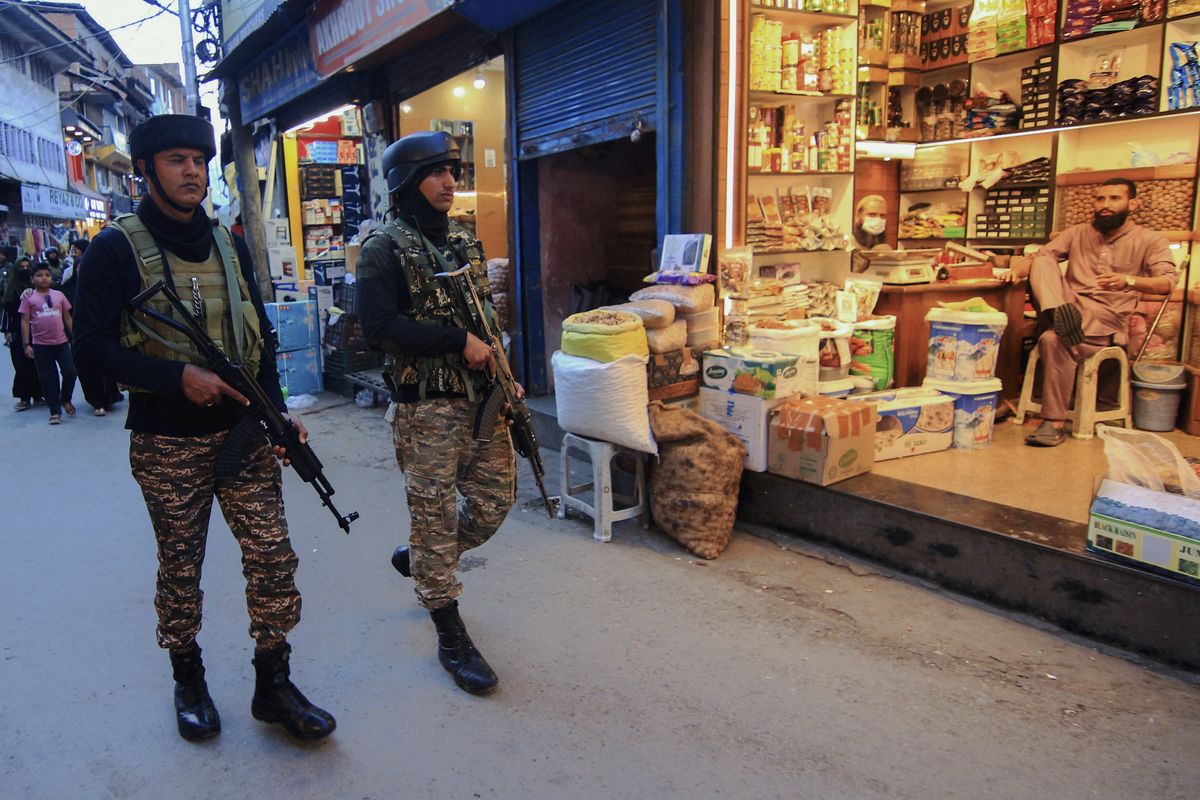Saudi Arabia warns of strict penalties for visa violations as Hajj season nears
Authorities warn that visa overstayers face fines up to SR50,000, six months in jail, and deportation

In this file photo, a Saudi police female officer stands guard as pilgrims perform final Tawaf during the annual Haj pilgrimage.
Reuters
As Saudi Arabia ramps up preparations for the upcoming Hajj pilgrimage, the Ministry of Interior reasserted its zero-tolerance stance on visa violations, particularly targeting expatriates who remain in the Kingdom beyond the validity of their entry visas, Gulf Newsreported.
Authorities have made it clear that individuals who overstay their visas face severe consequences, including a fine of up to SR50,000, imprisonment for up to six months, and subsequent deportation.
These penalties form part of the Kingdom’s broader strategy to regulate the movement of visitors and ensure security during one of the world’s largest annual religious events.
Officials also reminded visitors that holding a visit visa does not grant permission to perform Hajj. All foreign nationals and residents are being urged to adhere strictly to visa terms and to leave the country on time to avoid legal action.
Tightened entry rules
Saudi Arabia has introduced a series of new control mechanisms to support crowd management and uphold safety during the pilgrimage season:
- Permit required for Mecca entry: Starting April 23, 2025, only those with official permits—such as residents of Mecca, individuals with work authorization at the holy sites, or registered Hajj pilgrims—will be allowed entry into the city.
- Strict Umrah visa timeline: The final day for Umrah pilgrims to enter the country was April 13, 2025. All visa holders must leave by April 29, 2025. Staying beyond this date could result in fines or other legal consequences.
- Fines for non-compliant service providers: Hajj and Umrah operators who fail to report pilgrims overstaying their visas may face fines of up to SR100,000. Penalties will increase with each violation, reinforcing the need for accountability among service providers.
The report said these actions are part of Saudi Arabia’s ongoing efforts to preserve public safety, maintain order, and protect the sanctity of the holy sites during Hajj.
The government has also encouraged the public to report any violations or suspicious activity by calling 911 in Mecca, Riyadh, and the Eastern Province, or 999/996 in other regions.
Popular
Spotlight
More from World
Indian vets to be redeployed as security guards in Kashmir
Plan follows ceasefire with Pakistan after deadly attack on tourists sparked cross-border tensions













Comments
See what people are discussing